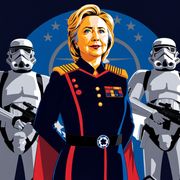|
Spartan421 posted:Did they even have any mad scientists during the war? Their technology seems to have remained the same for the duration while the Soviets, Brits, Germans, and Americans kept developing better tanks and aircraft. I guess they were all stationed in Manchuria torturing Chinese civilians. besides their always popular chemical and bio weapons testing ( Units 100, 515 & 731) they had a go at a microwave Death Ray called the "Ku-Go", apparently it worked well on rabbits & humans (insert Chinese captive here)... had a range of 3 metres though.
|
|
|
|

|
| # ? Jun 9, 2024 20:43 |
|
DerDestroyer posted:Why was the Japanese army so schizophrenic on the tactical level? Many people believed the A6M2 Zero for example was one of the best fighter aircraft. But ultimately it was lacking in so many ways compared to rival American aircraft at the time. You could bring down an F6F but I bet the pilot would survive. A shot down zero meant the pilot rode her down to his death or just died in from the gunfire to his poorly armored cockpit. As soon as the Americans developed appropriate tactics to counter the Zeros they were bringing them down like crazy. Again, if nobody minds: Japan, early in the war, developed a massive sense of hubris. You would too, having taken out the supposedly impenetrable British fortress of Singapore, the Philippines and most other European colonies, including the attack on Pearl Harbor. This hubris was due to the elite fighter pilots and troops that had made all of these victories possible. The Japanese Air Force (and Navy pilots) were the best in the world and the Zero was a perfect compliment to this skill. Japanese troops had had a string of unbroken victory. They couldn't lose. Until the battles of the Coral Sea and, most of all Midway. Midway shattered this illusion. The hubris bit the Japanese in the rear end, with a little bit of luck. The destruction of the four of Japan's mainline carriers, the heavies, the war winners, was a helluva blow. Not only the loss of the carriers, the crews and the best Naval leaders but the loss of many experienced pilots, men who had made all those earlier victories possible. The Japanese had assumed taking Midway would be easy; American skill and a bit of luck saw the loss of a large bulk of their carrier fleet. Japan also had another problem; lack of industry. Japan's industrial capacity has been compared to, of all combatants, Italy. Piss poor, in other words. Japan had no significant tank force, a poor medical arm and after the Zero, their planes either were inferior or never produced in quantity. In addition the Japanese Army and Navy were like bickering school children and could never get along. Even in the deepest, darkest moments of the war, the Japanese inter-service rivalry ensured that what industry and R&D Japan did have would never be used effectively. The only thing that staved off disaster was the Japanese soldier. Long after the Motherland could no long ship reinforcements, food, or anything of note, the Japanese garrisons still held land and, in many cases, had to be assaulted. It was this dedication to Japan, the Emperor and tradition that saw pointless Banzai attacks, Kamikaze attacks and the destruction of the symbol of the Japanese Navy, the Yamato.Yamato, the most powerful battleship in the world and perceived by the Japanese High Command as their war winning weapon, was sent on a one way mission to Okinawa, fully armed and with a half a tank of gas, to beach itself and use it's massive cannon as artillery and her crew as desperately needed reinforcements. They never even got close. American planes found her and, frankly, bombed the living poo poo out of her. There was no contest, when Yamato blew up the sentries on the Japanese mainland could see the mushroom cloud, 200km away. A total waste of the symbol of the military and not even to any significant effect. In a way, it's a microism of the entire Japanese war effort. Late in the war the pointless Banzai attacks were a tactical thing and many isolated Japanese garrisons figured out how to hold on for as long as possible against far superior American firepower. It was at this stage that the Japanese became some of the best defensive troops of the war. Lies helped to motivate the Japanese soldier; many knew exactly what was going on but their officers refused to admit that anything was wrong. They were willing to slaughter their own troops against superior American firepower to prove this. One last Banzai charge for the homeland, right? By 1944 the hubris that had allowed earlier victories was gone, replaced by a sense of dread that drove the remaining garrisons to sacrifice themselves for abstract ideas of culture, the Emperor and the homeland. Make the Americans pay for every inch gained, which the Japanese, in some of the most skillful holding battles of the war, did in spades. Some of what the individual Japanese soldier accomplished in these days is amazing, considering the spectacular display of firepower and individual initiative by the Americans. Japan's war is a contradiction; highly skilled and dedicated individual troops, airmen and seamen supported by an underdeveloped industry, a leadership unwilling to admit that they could and would lose battles and eventually the war, and a leadership that had little or no sense of the need to preserve the lives of their soldiers and sailors. It was, in the words of a Japanese veteran from a book I just finished "asinine". Burning Beard fucked around with this message at 14:32 on May 3, 2010 |
|
|
|
What is your opinion of the book The Future of War by George and Meredith Friedman?
|
|
|
|
Burning Beard posted:Do you think they'd repeat this all again or has the JSDF been instilled with a sense of self preservation due to American influence? Like say China decided to invade Japan, would Japan try to play it smart this time?
|
|
|
|
DerDestroyer posted:Do you think they'd repeat this all again or has the JSDF been instilled with a sense of self preservation due to American influence? Like say China decided to invade Japan, would Japan try to play it smart this time?
|
|
|
|
Just a random example. I don't really care what kind of war it is I just wonder if they're likely to repeat the same sort of behavior they had in World War 2 if they had to fight a war.
|
|
|
|
DerDestroyer posted:Do you think they'd repeat this all again or has the JSDF been instilled with a sense of self preservation due to American influence? Like say China decided to invade Japan, would Japan try to play it smart this time? No, I think the mindset of the Japanese in WWII is truly history. The absolute dedication to the Emperor and the culture of bushido is no more. If any sort of conflict would happen, I think Japan would fight solely out of self-preservation. As for Japan actually being an aggressor, I highly doubt that would happen ever again. I don't know much about Japan after 1945, but the near total transformation enacted by the American Occupation and the emphasis on commerce, trade and globalization has put to rest those pre-WWII attitudes that saw Japan go to war. That's just an opinion though. The JSDF would play it really smart, because they have the technology, logistics and industry to fight far more effectively. The American spirit of preservation is more of a western thing, and many aspects of Japanese culture were westernized, I am betting the military is no exception. The War instilled a sense of disgust in many Japanese for anything military, the JSDF is looked down upon by many within the culture. I am sure that this is slowly changing, but for years joining the JSDF was a good way to fall into your families bad graces. Many Japanese honor their war dead, look at the memorials scattered across the Pacific. Recently, teams have made dives to the Yamato and other ships as well. Modern Japan is well aware, I think, of the stupidity of their wartime leaders. On certain Islands you will see a pathetic memorial to the Americans who died there, but an elaborate memorial to the Japanese war dead. They know of the slaughter and of the futility of the continued struggle. Go to any major town and I bet you will find an American vet of Iwo Jima, Pelieu, Okinawa and of the other island campaigns. Japan has no such thing. I am sure you can count Japanese vets of Iwo Jima on your left hand at this point, maybe not even that many (I think of 6,000 or so, 10 were captured; the rest died). I would speculate that such things have permanently impacted the psyche of Japan. I have heard stories of Americans who have Japanese war souvenirs, like flags and such, that are personal and inscribed by the families of the soldier. A few of these guys have contacted the Japanese Embassy and these souvenirs are identified and shipped back to an incredibly grateful Japanese family who, for years, knew nothing of the fate of their loved one.
|
|
|
|
Will2Powa posted:Yeah, from what I remember, was that the lessons of the American civil War was ignored by the Europeans, setting them up for the rude awakening they received in WWI. The ACW was a different type of war than the Great War, though. The biggest change was in airborne reconnaissance and the efficacy of the machine gun and fast-firing breech-loaded artillery in trench warfare (of a type which was more widespread than usually acknowledged in the ACW). The real lessons the Europeans ignored at the outbreak of WWI were actually right on their doorstep, in the oft-ignored Balkan Wars of 1912-13. There were observers and attaches from every major European military with those troops and you really saw the way contemporary warfare was being conducted. Near-suicidal bayonet charges into machine gun fire, cavalry as a mere screening force, and the efficacy of the new kind of fast-firing artillery concentrated and directed at a strategic level. Most of the attaches completely ignored the lessons learned in the Balkans; only a reporter for a paper in Cleveland pointed out that machine guns were the new way of warfare. I'm actually a military historian of a sort, my specialty is the Balkans and the Ottoman Empire, though covering a wide range of time. My first publication was on the Military Revolution of Early Modernity and how the Ottomans applied it (or failed to), and I'm currently working on a project which I'll be continuing on a Fulbright in Bulgaria starting this July about the training and doctrine of the Bulgarian army in the Balkan Wars and Great War.
|
|
|
|
Burning Beard posted:Japanese Soldier stuff I think the most eye-opening book on the Japanese side of WW2 is Kamikaze Diaries, which is an utterly heartbreaking book. Just like most Westerners I was always told the story of the kamikaze soldiers as completely brainwashed nationalistic patsies who died believing they were saving their country. The reality is much more sad than that. By the time kamikaze attacks were used, most of the "ordinary" pilots were already dead, as noted before in this thread. Instead, the main source of recruits became university aged boys who were extremely well read, very reflexive and critical on the role of their country as aggressor but yet unable to give up their allegiance to said country. There are no gung-ho thoughts that they would ever live or even hope to win the conflict, indeed they wrote about an impeding sense of doom for their entire culture from very early on in the conflict. Really, it is the best read I can think of for dispelling these Western notions of a brainwashed Japan drunk on nationalism. Instead you find dispairing kids trying to find solace in everything from Zola to Botticelli and Kant while contemplating a death they know is inevitable. Are these the words of a nationalistic fanatic? "Individualism, egotism, amoral and demonic principles, the hypocritical/anti-emotion principle, the rational principle, antinationalism, utlitarianism - if people know how to skillfully combine them all, they will be great people in the world. The Jews and overseas Chinese have no country. They have strategically used these principles and succeeded in their effort; they should receive universal respect" -Takushima Normitsu, January 1941, died 1945 as an attack bomber captain, age 24. It is really tough to read some of the stuff in that book, wartime memoirs and diaries is the best way to really see many of the tragic side of these conflicts which are glazed over in the more overall descriptions of war, and also add complexity instead of stereotypical images of soldiers. After all, we want to believe the kamikaze pilots were simple minds hooked on nationalistic fervor instead of writing things like this the days before plunging into a destroyer: "It is easy to talk about death in the abstract, as the ancient philosophers discussed. But it is real death I fear, and I don't know if I can overcome the fear. Even for a short life, there are many memories, For someone who had a good life, it is very difficult to part with it. But I reached a point of no return. I must plunge into an enemy vessel. To be honest, I cannot say that the wish to die for the emperor is genuine, coming from my heart. However, it is decided for me that I die for the emperor." -Hayashi Ichizou, died as a tokkoutai (kamikaze) pilot on April 12, 1945, age 23. Many drafted Japanese write about expecting Japan to lose from as early on as 1942, which makes the thousands of futile deaths from then to -45 by soldiers with no hope for the future even more sad. As for Japan today, I lament the fact that younger generations know so very little about the war, but that goes for other Asian countries too. I studied in Tokyo and many Asian university students couldn't even place WW2 in the correct century (!), no less say which countries were involved or what happened during the war. But while knowledge about the wars of the 20th century was appalling, the ingrained pacifism of post-war Japan makes me doubt they will be the aggressors in an armed conflict within a generation or two, if ever. lilljonas fucked around with this message at 21:00 on May 3, 2010 |
|
|
|
lilljonas posted:How about this: Americans in the Civil War dressing up like Algerian beduins? You should check out the Louisiana Tigers, a confederate Zouave regiment that, instead of a fez wore straw hats. Speculus fucked around with this message at 22:05 on May 3, 2010 |
|
|
|
lilljonas posted:As for Japan today, I lament the fact that younger generations know so very little about the war, but that goes for other Asian countries too. I studied in Tokyo and many Asian university students couldn't even place WW2 in the correct century (!), no less say which countries were involved or what happened during the war. But while knowledge about the wars of the 20th century was appalling, the ingrained pacifism of post-war Japan makes me doubt they will be the aggressors in an armed conflict within a generation or two, if ever. I was always told not to discuss the war with Japanese people even if I'm paying respects to their side because it's an overall taboo subject. Indeed any mention of the war to modern day Japanese people seems to either create a very awkward atmosphere or they'll simply tell you history is boring and they never really paid attention in class. A real shame, I find history to be one of the most important things you can learn because it helps us understand our past to create a better future and avoid repeating the same mistakes.
|
|
|
|
What was Hitler's biggest strategic mistake before Operation Barbarossa?
|
|
|
|
Invading Poland.
|
|
|
|
billion dollar bitch posted:Invading Poland. Hitler had told his generals no war until 1945 but he took a chance and it all went downhill from there.
|
|
|
|
Mr. Motivator posted:What was Hitler's biggest strategic mistake before Operation Barbarossa? Helping the twit Mussolini invade Greece, the Balkans and Yugoslavia. The "Muss" wanted to prove the size of Italy's penis, so he declared war on a bunch of under equipped Balkan states. Problem is, Italy was not much better. Italy got bogged down because Mussolini just took on too much: Africa, the Balkans and the invasion of France. He also sent something like 200 planes to help the Germans attack Britain. His forces got bogged down. Hitler, against his normal rational calculations, decided to help what had been a loyal friend. The same German forces that were set to invade Russia instead went into Yugoslavia and Greece. Instead of getting to start lines, resting, refitting and getting ready, the German forces had about 6 weeks to get ready, way too short a time period. Tanks need refitting: no time for that in the dash to get to the start line. Helping Italy also took about a month off the Russian timetable; one less month of prime campaigning weather. Freezing German soldiers in winter are testament to this. Every German strategic decision before this was sound. Loyalty versus cold calculation did not win out.
|
|
|
|
How was the morale, training, leadership, and equipment of the average Italian soldier during WWII? I get the impression they were mediocre at best. Did your average Italian give a drat about Mussolini and the fight?
|
|
|
|
Spartan421 posted:How was the morale, training, leadership, and equipment of the average Italian soldier during WWII? I get the impression they were mediocre at best. Did your average Italian give a drat about Mussolini and the fight? Morale was so-so, depending on how well they were doing, from what I can tell. By the time of the Desert War, the Italians were little more cannon fodder for Rommel's plans. The Italians had little reason to fight and the quick surrenders by many Italian troops in '42-'43 I feel is pretty good evidence about the steep decline of the Italian will to fight. Italian leadership varied immensely. From what I have read, I feel that most were competent, but suffered from strategic problems and issues of supply. The organization of the Italian division is a good indicator: two regiments formed a division and often a Black Shirt regiment was added to the mix (the Italian fascist organization.) This is a really awkward organization as is (most other combatants used a triangular organization) and the understrength fascist unit was seen as a way to get the believers into battle. I think it also offers a good look at how strategically the Italians had it wrong from the start. Mussolini was, technically, the elected PM of Italy and still reported to the King. While in reality his position was more secure than say, Gordon Brown, he still was not as secure as Hitler. As for the average Italian loyalty to him; when things were good, Mussolini had lots of support. When the Allies invaded and the Germans disarmed the Italian armed forces Mussolini's support vanished and he became leader of the Italian Fascist Rump state in Northern Italy with minimal armed forces and a decidedly fascist outlook. Equipment: Italian equipment was at least as good as many other powers, at least for the individual soldier. The Carcano rifle was a decent rifle but was also issued in two wholly different calibers, 6.5mm and 7.35mm, which complicated the supply issues immensely. They had decided to switch calibers just as the war started. Essentially they got caught with their logistical pants down. The Beretta M34 Pistol and SMG were amongst the best in the war and much sought after by both German and Allied troops. The Navy and the Air Force was decent, the Italian Navy actually gave the British a very good run for their money early in the war. Mussolini was unwilling to give up his Navy to major operations after Crete in 1940. The British took care the Italian Navy with one helluva of daring air attack in 1941. Italian submarines were good enough to be taken by the Germans after 1942 and used in the Atlantic War. What is boils down to is the inability of Italian industry and the infrastructure of the state to keep Mussolini's ambitions alive. He got greedy and extended himself way to far. The African campaign (North Africa and the Sudan) should have been easy because of numbers, but those theaters were are the very tail end of the Italian supply chain and there was never enough of anything. The Germans regarded their Italian allies with contempt and Generals like Rommel had zero problems with stripping the Italian units of motor transport and leaving them to the Allies. I feel when properly led and supplied the Italian soldier was good. Very good, in fact in some cases. But for most of the war, this was certainly not the case. Italy and Japan had roughly similar industrial capacity. The Italian soldierly was not willing to die for Mussolini in no way shape and form. When it looked hopeless they did what many call the smart thing: they surrendered and went home.
|
|
|
|
lilljonas posted:How about this: Americans in the Civil War dressing up like Algerian beduins? I LOVE Zouaves. You know why we dressed our boys in these cumbersome and ill-fitting uniforms?* Because the French were winners, and we wanted to be like the French. No poo poo. Whenever a winning power exists , their uniforms get copied because, hey man, they're a winner! Look at US Army post war dress uniforms; they have Prussian style helmets after the Franco-Prussian war (1870). We got rid of those pussy rear end French Kepis and got the Prussian badass helmets, complete with spikes. Didn't hurt that the British had them too.  The Zouave uniforms soon (months) were replaced by practical campaigning attire, but they sure did look pretty. There was one Scottish unit, the 79th New York, but only a fraction of the men had kilts or trews. Basically the state regiments could dress however they wanted, as long as the money existed. Hence, Scottish and Zouaves running around the battlefields of Northern Virginia. *Fun fact, the US ordered many uniforms from France and they simply did not fit our cornfed American boys; they were too tall. Also, sorry for hijacking the thread from the OP. I really enjoyed reading his posts and I hope he chimes in with corrections to any of my mistakes. Burning Beard fucked around with this message at 01:25 on May 4, 2010 |
|
|
|
This is sort of a groping-in-the-dark, poorly formed question (if that). It's mostly because I haven't entirely formed this opinion properly for myself, so I can hardly put it to you terribly coherently. Anyway, in your opinion, how often are wars really closely run things? I used to think they were like close soccer matches or horse races - any one can win, and if xyz General had done DEF instead of ABC, it could have changed the entire course of history and we'd all be speaking German or whatever. However, the more reading I do, the more it seems as if the outcomes of wars are predetermined, based on a blend of money, numbers and political will. Take the US Civil war. The Union always had more armies, more industry, and more logistics. The South had some good generals, but it seems to me that the Union could just keep grinding them down and going at it for as long as they needed to. Or WW2. I used to think "well zomg, we nearly all got taken over by Facists". But looking at it more carefully, it seems that the Allies always had more depth. In any case, I don't see how the Germans could have taken the Russians, even if they'd invaded a month earlier or brought more overcoats or whatever. Russia's just so freaking huge, surely the invasion and occupation was doomed from the outset? So, are the generals and the battles really that important, or are they just playing a big game that was really decided by pre-existing factors completely beyond their control?
|
|
|
|
On the issue of Russia, at least, a lot of that space is practically empty. I think things might have gone differently if the Nazis had gotten to Moscow. Also, think back to World War One: The Russians basically folded toward the end through internal revolution. I think it's pretty obvious that one-on-one, Germany couldn't have won, but they might have thought they could hit Russia badly enough to get them to beg for peace and give Hitler a lot of actually useful territory.
|
|
|
|
Burning Beard posted:The Navy and the Air Force was decent, the Italian Navy actually gave the British a very good run for their money early in the war. Mussolini was unwilling to give up his Navy to major operations after Crete in 1940. The British took care the Italian Navy with one helluva of daring air attack in 1941. Italian submarines were good enough to be taken by the Germans after 1942 and used in the Atlantic War. Well, a caveat - their small boats were excellent. Their larger ships were handled very timidly, though in their defence Italy was also critically short of oil to actually fuel them.
|
|
|
|
Anyone want to give their nomination for the worst military commander?
|
|
|
|
Ego-bot posted:Anyone want to give their nomination for the worst military commander? While the accounts are a tad biased, he didn't have the best resources to work with, and were up against maybe the best military commander ever, Darius III was pretty crap. For more modern periods, check out the clusterfuck that is Pavel Grachev. Responsible for going into Chechnya to storm Grozny to put an end to the separatist movement. Led the attack, while drunk, and caused a Russian defeat and hundreds of thousands of civilian casualties. Yes, he called in tanks to flush out a capital populated by extremely highly motivated insurgents armed to the teeth. You shouldn't do that. lilljonas fucked around with this message at 20:20 on May 4, 2010 |
|
|
|
Too bad most people are relieved of command before they are able to consistently suck. I'm sure Abraham Lincoln would have a few nominations. Now that I think of it good ole Uncle Joe(Stalin) may very well hold the record for getting the most friendly troops killed directly or indirectly. As for actual career officers that are "the worst", I should know but nothing comes to mind.
|
|
|
|
lilljonas posted:While the accounts are a tad biased, he didn't have the best resources to work with, and were up against maybe the best military commander ever, Darius III was pretty crap. Kinda sounds like the battle of Vukovar to me.
|
|
|
|
My son has a report on the French Intervention due on the 7th. We've gone over more than a dozen references at the library and online looking for at least ONE of them to agree on how many troops were sent to Mexico in the beginning of the Intervention, and then again after the Battle of Puebla. We've seen answers range from 3-9k in the beginning of the Intervention, and then adding another 30-35k reinforcements a year later. I am positive I haven't seen the same numbers in two books. The teacher wants exact numbers as part of the report. I assume that the teacher looked at one source for his "answer" and didn't think to look at all the other sources to find out no one agrees on an exact number. To your knowledge, what is the most agreed upon "official" number of French military that invaded Mexico in the 1860s? (He also wants exact numbers of participants and casualties in the battle of Puebla; I'm pretty sure the rear end in a top hat used wikipedia for his reference, and that's a site I don't let my kids use for homework.  Though in this case it looks like I may have to just to put a single set of numbers in.) Though in this case it looks like I may have to just to put a single set of numbers in.)Also hey Happy Cinco De Mayo everybody! A bunch of Mexicans and French died starting tomorrow 150 years ago! Woohoo let's party!
|
|
|
|
I'm a bit behind on answering specific questions, but there are some other posters here doing quite a good job at providing information on Ancient Rome/WWII Japan/etc., so I'm going to attempt a couple of broad answers to related questions. First, regarding culture and its relationship to how war is practiced by different countries, ethnicities, government types, etc. As I indicated in my initial post, this is a topic that I am quite interested in, but mainly for the reason that I think it tends to be overplayed. That being said, I'll try to give the arguments for and against the presumed connection between culture and warfare. The idea that the cultural, as opposed to the material, heritage of different nationalities and ethnicities affects the way in which they prosecute war is not a new one. Indeed, in Xenophon's Anabasis, written a little after 400 BC, there are several episodes in which the Persian enemy's methods of fighting are presented as being somewhat timid and inferior to those of the Greek author and his compatriots. There are many instances of Roman commanders' speeches extolling the virtue and discipline of their own troops in contrast to the Germanic/Persian/whatever "mob" confronting them. There are countless similar examples in every culture. Nevertheless, something that is new about this idea are modern attempts to codify it and prove that it is a definable and significant aspect of military activity. Often, the starting point for anyone attempting to define obvious differences in the way different cultures fight is the clear superiority of modern Western militaries in the field of global conflicts. Since the beginning of the Early Modern Era, circa AD 1500, European military efforts against opponents from other areas of the world, including the Americas, Asia, and Africa, have seen far more successes than failures. Why is this? According to proponents of "Western Way of War" theories, it is because there are qualities inherent to Western European culture that provide a better foundation for military endeavors than cultures from other regions. According to Victor Davis Hanson, one of the most vocal of these proponents, these qualities include a proclivity towards scientific and rational thought, freedom and individualism, civic militarism, discipline, and various other similar ideas. This partial listing is taken directly from his book, Carnage and Culture: Landmark Battles in the Rise of Western Power, published in paperback by Anchor Books in 2000, page 21. Hanson goes on to give specific examples of what he sees as these qualities manifesting themselves in battle. One example is the battle of Rourke's drift in 1879 (which, incidentally, is the subject of the movie Zulu, one of my absolute favorites). In this battle, fewer than 150 British soldiers fought off an attack by some 5,000 Zulu warriors. Hanson sees this as being the direct result of British ingenuity and discipline, and, at the same time, of Zulu military infirmity. Likewise, Hanson and others offer the quick adoption by Westerners of innovations such as gunpowder and mass production as further evidence of Western superiority. Furthermore, they cite the fact that all large modern armies, whether they are Russian, Iranian, or Chinese, are patterned on Western ones. Given such arguments, it seems almost obvious that there is something about European culture that simply promotes military success. However, and this is where my own opinions begin (although I certainly not the only one with this view), cultural Way of War advocates cannot explain a lot of contradictory evidence. For example, in the Pacific theater of WWII, the ferocity and suicidal fervor of Japanese soldiers is often highlighted, focusing on their refusal to surrender and willingness to fight to the last man. It is often said that their zealotry was the result of a sort of cultural brainwashing that had imbued them with a sense of absolute loyalty to their emperor. Certainly, nothing like this would ever happen in a Western nation? But this ignores concurrent examples of German SS units similarly fighting to the last man, against all odds. Indeed, in American history, the battle of the Alamo had occurred little more than 100 years previous. Going back to the beginning of Western culture, who can forget the stand of the 300 Spartans at Thermopylae? How can the supposed importance of cultural differences account for such similarities? In my opinon, it can't. In response to some of Hanson's own examples, the British contingent at Rourke's drift was not the primary objective of the Zulu army that attacked it. While the British contingent certainly did hold out against a far larger force, I don't think that would have been the case had the Zulus seen them as anything more than a target of opportunity. As regards technological innovation and mass production, it was the Soviet Union, not any of the Western European nations (or the US) that produced the most versatile and dependable tank of WWII, the T34. And they did so in overwhelming numbers. (The question of whether or not Russia/USSR should be considerd a Western nation is one I would be happy to debate. I say it's not.) In addition, geographical factors can account for many of the disparities in Western versus Eastern military development, as in the adoption of gunpowder, which I'll address in my next post. BIAS ALERT While I recognize the fact that this post probably doesn't answer any specific questions, I thought it was necessary to at least bring this debate into the picture. The controversial nature of "Ways of War" colors a lot of academic work, but it also has real effects on current military undertakings. For example, and this is a rather glaring one, several members of the Bush Administration, including Donald Rumsfeld, were big fans of folks like Victor Davis Hanson. The military approach taken in Iraq in 2003 was a direct reflection of the way they thought a "Western" military should fight a "Non-Western" one: a relatively small but highly trained and well equipped army defeated a numerically superior but technologically and morally inferior foe. Piece of cake, right? Mission Accomplished! Except the decision to send in a small, elite force had dire consequences when establishing order became the new mission. Had a larger force been used initially, this may not have been the case.
|
|
|
|
Ego-bot posted:Anyone want to give their nomination for the worst military commander? I have always had some admiration for that tremendous gently caress-up Major General Elphinstone, who oversaw the 1842 Retreat from Kabul. What made him particularly egregious wasn't so much that he was incredibly incompetent and indecisive, but that the only time he showed any spine at all was to admonish officers who were watching british diplomats and civilians being massacred in the streets and wanted to do something about it. The only silver lining to the cloud was that, unlike a lot of recent wars, everyone knew full well who was responsible for the entire mess, and if Elphinstone hadn't died in an Afghani prison cell somewhere his military career would have been destroyed. To quote another british general of the day, he was "the most incompetent soldier who ever became general". The first Flashman book gives a (fictional) first-hand account of the mess and the leadup to it. The author, George MacDonald Fraser, sums the debacle up accurately by saying "If you had taken the greatest military genuises of the ages, placed them in command of our army, and asked them to ruin it as speedily as possible, they could not - I mean it seriously - have done it as surely and swiftly as he did."
|
|
|
|
Alris posted:I have always had some admiration for that tremendous gently caress-up Major General Elphinstone, who oversaw the 1842 Retreat from Kabul. What made him particularly egregious wasn't so much that he was incredibly incompetent and indecisive, but that the only time he showed any spine at all was to admonish officers who were watching british diplomats and civilians being massacred in the streets and wanted to do something about it. Haha, what a dunce. At least he wasn't stupid AND immoral, what with the stopping slaughtering civilians and all.
|
|
|
|
ManicParroT posted:Or WW2. I used to think "well zomg, we nearly all got taken over by Facists". But looking at it more carefully, it seems that the Allies always had more depth. In any case, I don't see how the Germans could have taken the Russians, even if they'd invaded a month earlier or brought more overcoats or whatever. Russia's just so freaking huge, surely the invasion and occupation was doomed from the outset? The number one rule in writing counterfactual history (the 'scholarly' word for 'what if' scenarios, basically) is that history usually reverts to the set pattern because the thrust of history is more than just who won a specific battle or whatever. Say the Armada successfully invades England and installs a Habsburg to the throne of England, the likelihood is that a Habsburg England would have been short-lived much like the Habsburg Flanders/Netherlands, and eventually history rights itself, so to speak. Maybe details change, but the overwhelming course of English history doesn't, not really. HeroOfTheRevolution fucked around with this message at 01:44 on May 5, 2010 |
|
|
|
Great thread, Admiral Snackbar. Your knowledge of military history is loving ridiculous. On to my question, a few years ago I wrote a paper about the Polish-Soviet War in 1920, and came to the conclusion that despite it being a pretty small and unknown war it played an important role in curbing bolshevik aims (at least for the next two decades) of fomenting communist revolutions in the countries of Europe. Would you agree, or am I making mountains out of molehills? Also, did you find the use of cavalry by both sides in 1920 as awesome as I did?
|
|
|
|
Admiral Snackbar posted:
How does he explain the battle of Isandlwana? That didn't go so well for the Brits.
|
|
|
|
ManicParroT posted:How does he explain the battle of Isandlwana? That didn't go so well for the Brits. Isandlwana was a total gently caress up on the British commander's part, Lord Chelmsford. Chelmsford split his forces, taking half to find the Zulus and leaving half to defend the camp. The guys left in command did the British thing: the colonial commander, Durnford had rank but no authority over the regular troops. Pulline, the regular commander, believed he had no authority over Durnford. Not a good situation. What happened was simple numbers. Once the main firing line ran out of ammo, the volume of fire died down and the Zulus saw their chance. Zulu losses were immense and the King claimed that the battle was a travesty for his kingdom. They're still finding bones and artifacts on that battlefield. One of my dreams is to visit Isandlwana and see that mountain in person.
|
|
|
|
Will there ever be a conventional war between countries that have access to nuclear weapons?
|
|
|
|
Mr.Brinks posted:Will there ever be a conventional war between countries that have access to nuclear weapons? http://en.wikipedia.org/wiki/Kargil_War Yup.
|
|
|
|
Slo-Tek posted:http://en.wikipedia.org/wiki/Kargil_War That is, yes but that's more or less a minor border skirmish with much of the fighting on one side done by foreigners. Without nuclear weapons on either side, that could have erupted into a war costing tens of thousands of lives rather than about 1000. I'm a nuclear optimist, but I believe nuclear weapons have indirectly saved hundreds of thousands if not millions of lives since their invention. No one in their right mind thinks the use of nuclear weapons is a good thing, but realistically their existence and use as a deterrent is not a terrible thing.
|
|
|
|
Why did the Allies decide to land in northern France in WWII instead of say, Denmark or northern Germany? Denmark had a much smaller garrison and taking Denmark would have cut off 300,000 German troops in Norway and put Allied tanks within a couple of hundred miles of Berlin.
|
|
|
|
OctaviusBeaver posted:Why did the Allies decide to land in northern France in WWII instead of say, Denmark or northern Germany? Denmark had a much smaller garrison and taking Denmark would have cut off 300,000 German troops in Norway and put Allied tanks within a couple of hundred miles of Berlin. WW2 is not my strong suit, but I'd guess there were numerous factors. Keep in mind that more often than not, military decisions are rarely based purely on the best military strategy, but rather to serve political ends. Two I can think of off the top of my head are that US and British special services had been working extensively with the French resistance and the Brits wanted to get the Germans as far from British soil as soon as possible.
|
|
|
|
pimpslap posted:WW2 is not my strong suit, but I'd guess there were numerous factors. Keep in mind that more often than not, military decisions are rarely based purely on the best military strategy, but rather to serve political ends. Two I can think of off the top of my head are that US and British special services had been working extensively with the French resistance and the Brits wanted to get the Germans as far from British soil as soon as possible. Also, Normandy is a lot closer to Britain than Denmark/Germany, so that's probably going to help with air support, supplies, reinforcements, etc.
|
|
|
|

|
| # ? Jun 9, 2024 20:43 |
|
Landing in Denmark would have gotten them farther away from British soil than the 20 miles or so to Normandy. I'm going to say it was common sense. The invasion was supposed to be a surprise. You can't achieve surprise when your massive record breaking fleet is sailing the 300 miles to Denmark or whatever the distance is. I'm sure the Luftwaffe had patrols along the entire coast of Europe. Less chance of harassment from Luftwaffe/Kriegsmarine. Much more efficient logistics. Air support, one of the Allied strong suits, is a hell of a lot closer when needed. Western allies don't have to fight a two front war with Germans squeezing from east and west. Ships can make multiple trips a day back and forth from England and France dropping men/materiel off, or they can make one trip a week or some other low number going from England to Denmark.
|
|
|

























 new home, old colors, same Arsenal
new home, old colors, same Arsenal
